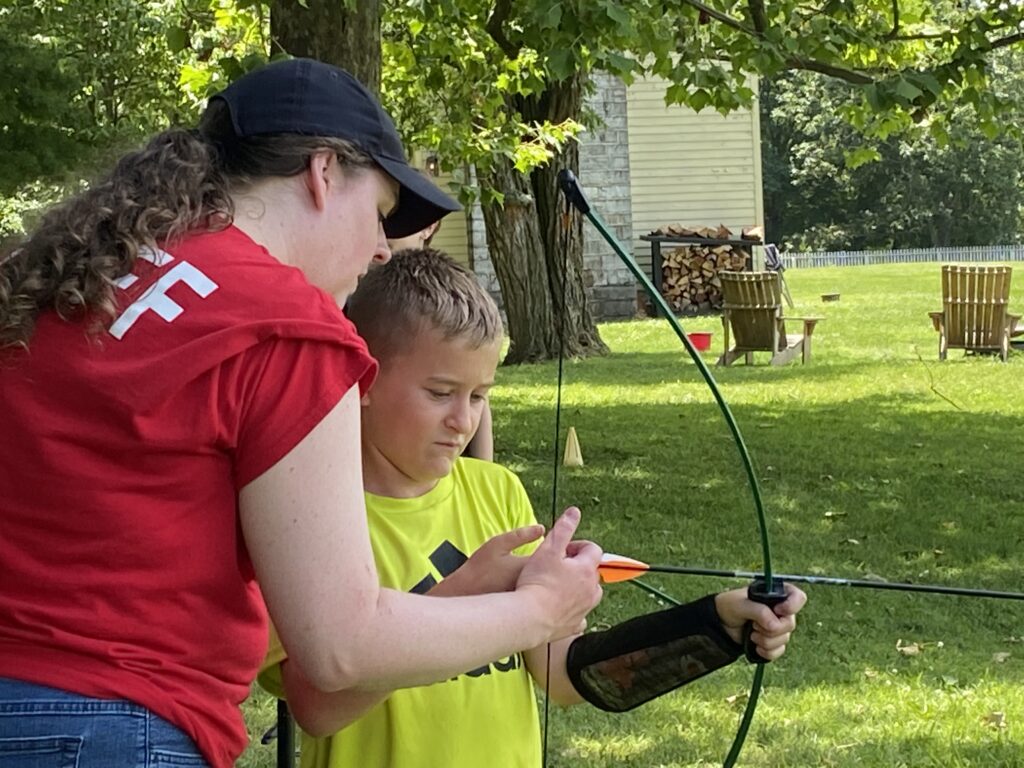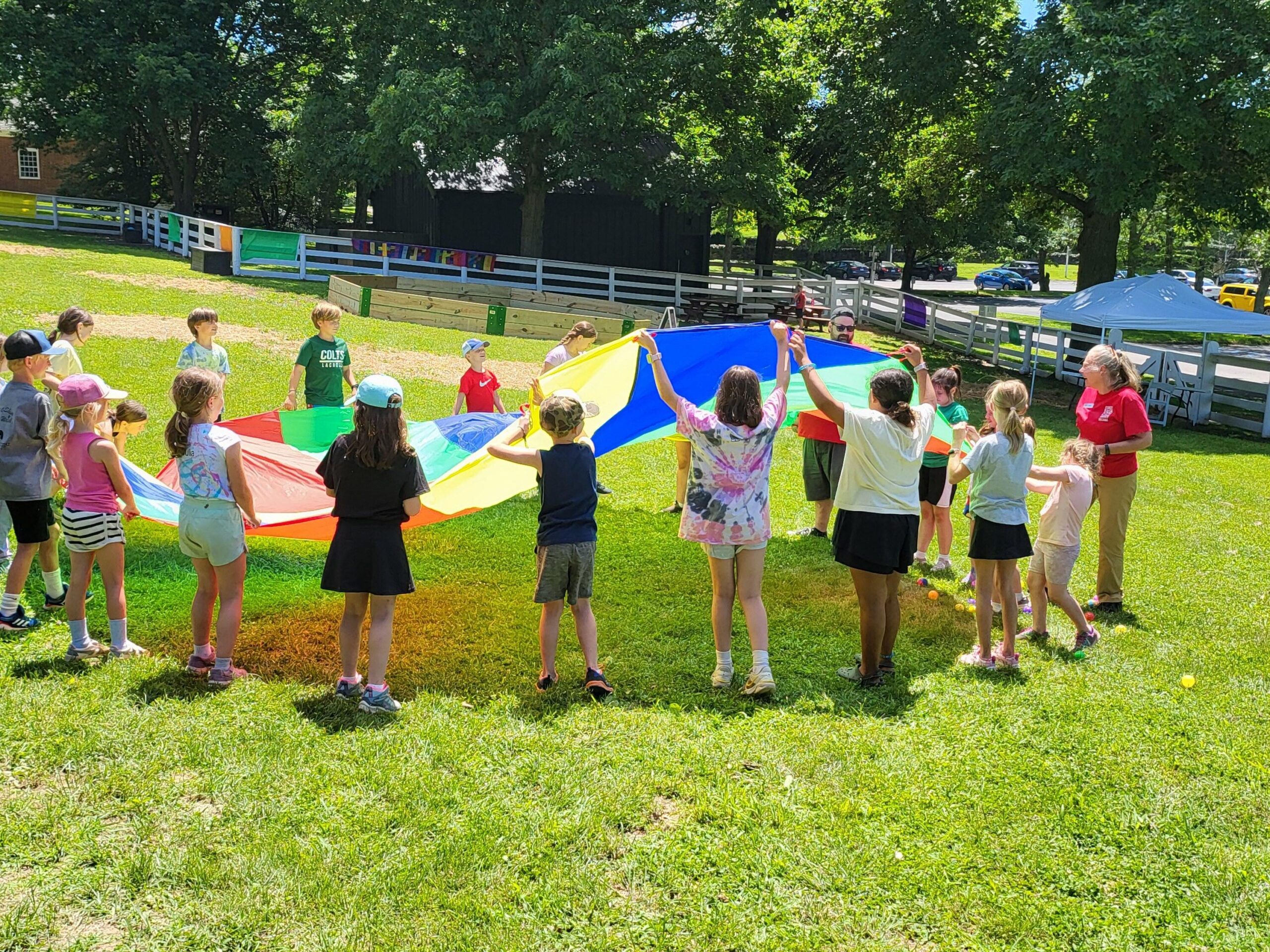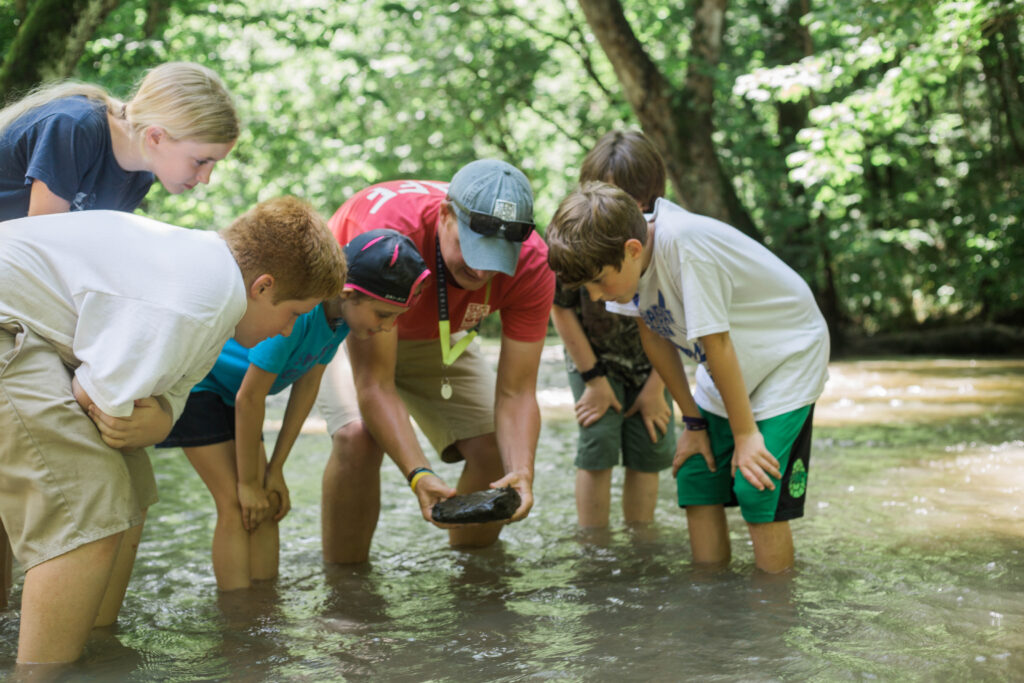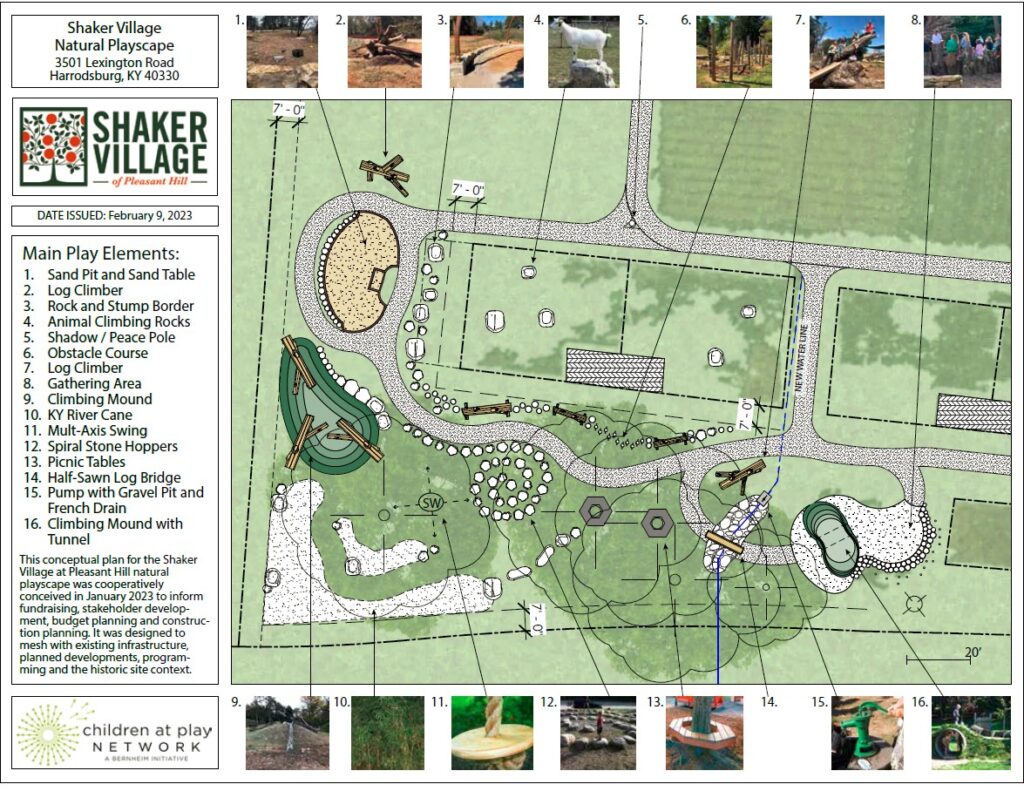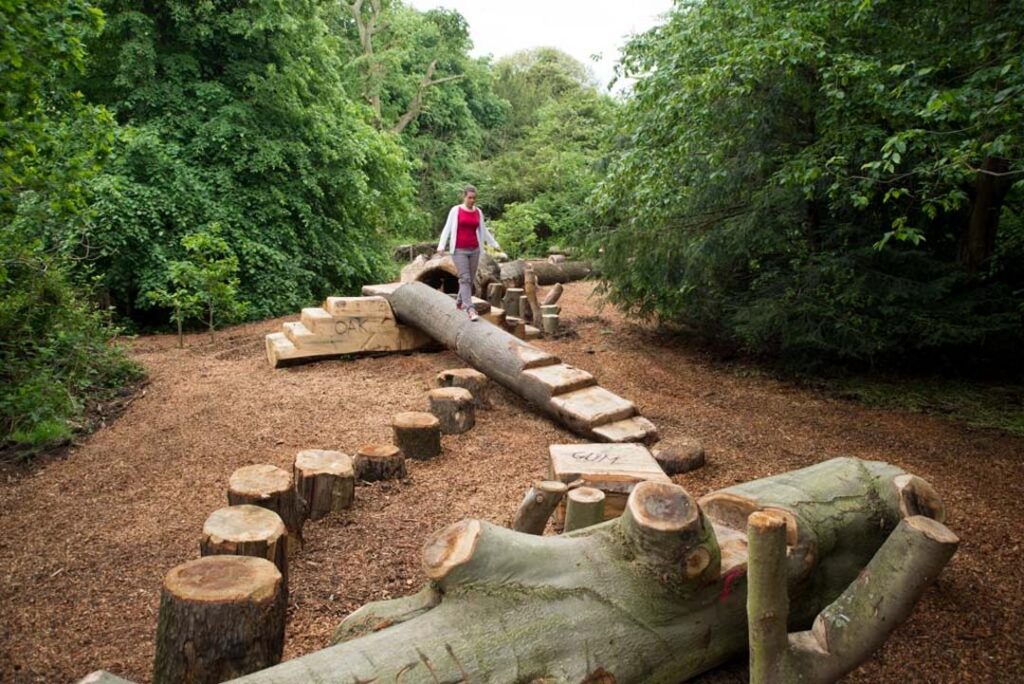Billy Rankin, Vice President of Public Programming & Marketing
To think of the stunted and withered childhood of our hot streets taken out into the country to breath the fresh air, to lay down on the green grass, to look up thru the green leaves into the blue vault of Heaven… – “The Children’s Summer Home at Shaker Town,” The Lexington Leader, June 12, 1916
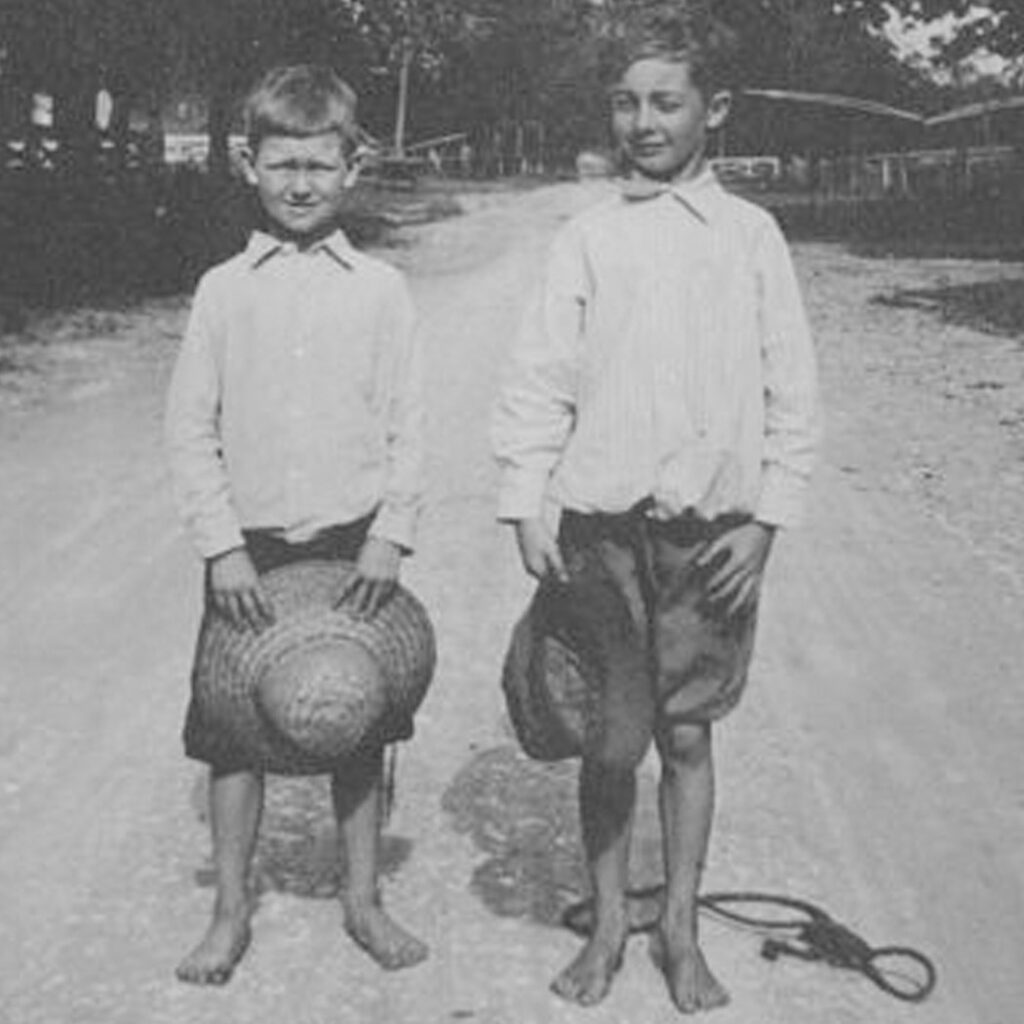
Modest Beginnings
Organized summer camps for children first appeared in the United States in 1861 when, in the early days of the Civil War, Frederick W. Gunn took a group of boys from Connecticut on a two-week trip to “spend time in nature, enjoy physical activity, and build character.” The concept of summer camps quickly gained momentum, and by the end of the century YWCA, YMCA, Boys’ Club, and a myriad of private camps had begun to open across the country. 1
It was the summer of 1916 when the idea of a summer “camp” for children at Pleasant Hill first sprung to life. Only six years earlier, the few remaining Shakers of the society determined to close their covenant to new members. Much of the property had already been sold to private owners, with many Shaker buildings being used as businesses, homes, and for agricultural purposes.
One of the remaining Shakers, Dr. William Pennebaker, took private ownership of a parcel on the west end of the Village, including the 1821 West Family Dwelling and 1811 Old Stone Shop. In 1916 the management of Lexington’s Associated Charities was seeking a “home during the hot months of July and August for some of the little children of Lexington whose parents…are unable to give them even the actual necessaries for life.” In partnership with Dr. Pennebaker, “Shakertown” became that home, and the first “organized summer camp experience” took place at Pleasant Hill.

That summer the experience was described as “…running knee-deep in June amid grass and wildflowers and beneath the overhanging branches of big trees, with the added joys of an abundance of cold, sweet milk, bread, butter, vegetables, watermelons and fruits – what a prospect the Shakertown adventure offers!”2
Summer Camp Returns
The partnership between Dr. Pennebaker and Associated Charities was short-lived, bringing summer camp at Pleasant Hill to a close after only one season. It would be 100 years before organized summer camp experiences would return to the Village.
In June 2016, Explorer Day Camp was born. Over the course of two, one-week sessions, 22 children became the first participants in a new summer tradition. Taking full advantage of the resources at Shaker Village, campers participated in programs for gardening, environmental education, archery, fishing, crafts, hiking, music, field games, and more.
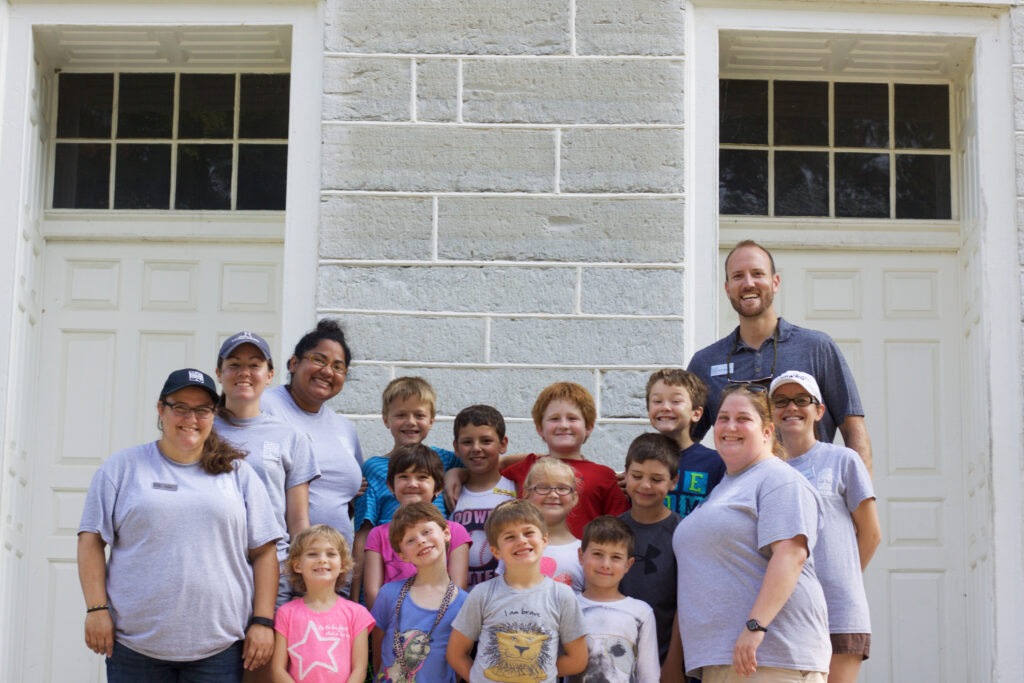
In subsequent years the program has continued to grow, adding year-round, dedicated staff, additional camp sessions, expanded opportunities for teen campers, and constantly evolving programs and activities. Explorer Camp now operates seven sessions of camp throughout June and July, while Teen Service Leadership and Leaders-in-Training welcome teen campers to develop their leadership skills. In total, 240 children will spend a portion of their summer in camp at Shaker Village this year.
Why Camp?
If you or your child have never experienced summer camp, you may wonder what all the fuss is about. What makes camp different from other childcare options? Is it worth the cost and effort?
A well-run summer camp with trained counselors is one of the best investments you can make for your child. Here are a few reasons why:
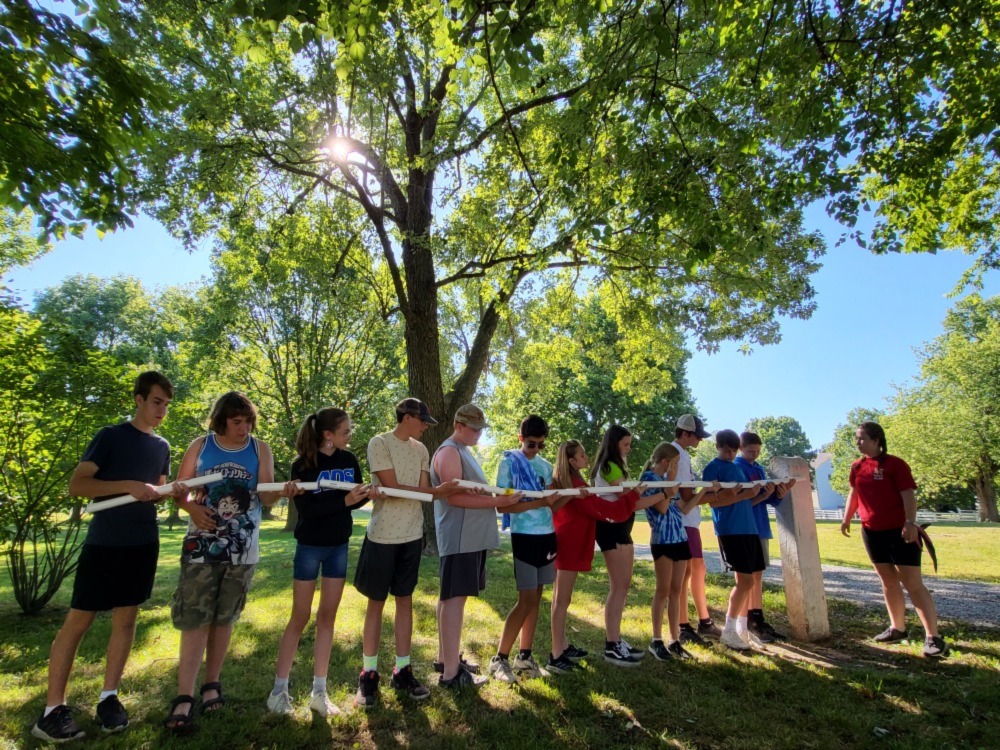
- Camp is a safe and nurturing environment that enhances social skills. Camp is for everyone, so children and youth have the opportunity to meet and interact with peers from outside their school environment.
- Camp supplements traditional education. Camps use intentional programming to create a balance of experiential learning opportunities that are physical, emotional, and social.
- Camp is a natural extension of the classroom. Research indicates that by participating in strategically planned, structured summer experiences, children reduce summer learning loss. Camp challenges children, keeps them engaged, develops creativity and their talents, and expands their horizons.
- Camp provides experiences that promote self-confidence and future academic growth. American Camp Association independent research shows that parents and camp staff, as well as the campers themselves, report significant growth in several areas, including leadership, independence, social comfort, and values and decisions.
- Camp encourages a respect and love of nature. Children are able to learn about the natural world. Camp also gives them a chance to “unplug.” More and more experts are advocating the value of time spent in nature for children — and camp is a perfect place to do that.
- Camp provides the opportunity to stay physically active. Camp is the ultimate outdoor experience with programs that offer physical activities and enhance health and teach self-confidence.3
Continuing to provide a high-quality summer camp experience is now firmly engrained in the mission of Shaker Village of Pleasant Hill.
If you would like to learn more about upcoming summer camp programs at the Village, or the benefits of summer camp, please contact us! [email protected]
